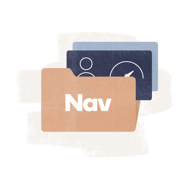For most small business owners, your personal credit score will likely always be part of any business creditworthiness discussion you will ever have with a lender. Most lenders working with small businesses will consider both your personal credit score and your business credit profile when they review your business loan, line of credit, or credit card application. With that in mind, there are things you need to know about your FICO score post COVID-19 to position your small business in the best possible light for any further aid the SBA might offer or any other financing that becomes available as more lenders re-enter the market.
Of course, a strong FICO score isn’t a guarantee your loan application will be approved, but many lenders look at your FICO as a go-no-go metric before they will even consider your business loan application. For example, a good rule of thumb to consider when looking for a loan is that a personal score of under 680 will likely not have any success at the bank—they actually prefer a score over 700. The SBA’s threshold is typically in the 640-650 range. And while there are lenders who will work with business borrowers with a score below that, they will likely pay higher interest rates, fees, and be saddled with more restrictive terms.
A strong FICO score will usually give a business owner more options when it comes time to apply for a business loan, which is why you can’t afford to ignore your personal credit score.
A Weak Personal FICO Score Can Be Improved
If you have a less-than-perfect personal credit score it will make qualifying for a business loan more problematic in the short term, but following good credit practices will, over time, improve your score and the odds of a loan approval. There are really no shortcuts to improving your score. This is one of those times when slow and steady really does win the race.
Don’t Ignore the Importance of Credit Monitoring
It’s human nature to impact the things you pay the most attention to. This is definitely true of your FICO score.
I’m a big fan of credit monitoring and have personally had a relationship with Experian for many years. All three of the major personal credit bureaus, Experian, Equifax, and TransUnion all offer, for a relatively small fee, credit monitoring services. Nav offers credit monitoring for both business and personal credit for FREE.
I get a monthly recap of my personal FICO score along with regular notifications of inquiries, notices, etc., so I can track how my score is either improving or declining. I also am able to periodically throughout the month view my account whenever I want. Over the years I’ve found that my score stays top-of-mind and I’ve been able to positively impact my score with the help of regular (at least monthly in my case) monitoring.
Another important reason to monitor your credit is to stay up-to-date with the credit industry. FICO just came out with new scoring models that take into consideration trended data from the past 24 months of your credit report. It helps to know what your credit scores are for the new scoring systems too.
Monitoring for Credit Fraud
With the rampant nature of credit fraud going on today, reviewing your profile at least monthly, looking for suspicious credit card or debit card transactions is more important than ever. If you have credit accounts with several different institutions, this can be particularly important.
Credit alerts that flag suspicious activity are also incredibly important. I get a notice any time there is a suspicious inquiry on my credit report and at the individual transaction level, I get a text message any time a transaction looks out of the ordinary from my bank.
Manage Delinquencies to Build a Strong FICO Score
Of all the things you need to know about your FICO score, staying current on your mortgage, any auto loans, personal credit cards, or other personal debt is the single most important thing you can do to build a strong personal credit history. In a perfect world, it would be pretty easy to do. Unfortunately, we don’t live in a perfect world, so appropriately managing delinquencies can help minimize the damage of an occasional late payment.
60 Days Late is Treated Differently Than 30 Days Late
If you have to miss a payment, don’t miss the second payment.
Your FICO score starts improving the minute you bring your accounts current. Don’t allow a late payment to discourage you into thinking it’s too late to do anything about it to save your credit score. Keep in mind that:
- Your score is measuring the time since your last late payment in months, so if you can bring your account current quickly, your score will start to improve.
- A late payment will impact your score less as time passes. Minor delinquencies have less negative consequences after a couple of years.
- How many late, or missed, payments you have makes a lot of difference. If you can keep your delinquency to only one account, it will help minimize the damage to your FICO score.
- After seven years, delinquencies typically fall off your credit report. Charge-offs and certain types of bankruptcies can stay on your report for 10 years.
Strategically Manage Your Revolving Credit Usage
Next to managing delinquencies, keeping your revolving credit usage under control is the most important thing you can do to build a strong FICO score. This is called “revolving utilization” in the industry. In a nutshell, creditors look at the total amount of credit available to you and compare that to how much credit you actually use.
For example, if you have two credit cards with limits of $5,000 each, your total revolving credit would be $10,000. If you currently have a $1,000 balance on one of them, but a zero balance on the other, your revolving credit utilization is 10%.
On the other hand, if you have a $4,000 balance on both of them, your revolving credit utilization would be 80%.
The borrower with 10% utilization will look like a better credit risk than the borrower with 80% utilization and will more likely have a better FICO score.
What’s a Good Utilization Percentage
If you want to build a strong FICO score that will positively impact your odds of success when applying for business credit, here’s a little inside baseball to help you know how a lender will look at your revolving credit utilization and what it could mean for a loan application.
- 75%+: This will be considered the highest-risk borrower.
- 50% – 75%: A borrower in this range still looks very risky to a lender.
- Under 50%: This utilization starts looking more reasonable. Your goal should be to further reduce your utilization to make yourself look like a better risk to a potential lender.
- 1% – 5%: this range will get you the highest number of points on your FICO score.
Carrying a balance on your revolving credit isn’t bad. To build a strong personal credit score, you want to strategically manage your revolving credit utilization and keep that percentage as low as possible. In other words, it’s not using your credit that is a problem, it’s making out your available credit that will hurt your score. In other words, don’t max out your credit cards.
3 Things You Can Do to Optimize your FICO Score
- Keep balances on any credit card or other revolving account below 50%
- Request higher limits on your credit cards and other revolving credit accounts—and avoid the temptation to use the increased limits
- Don’t close any credit accounts—a longer credit history is better and creditors look at your oldest credit account (the older the better)
Credit monitoring, managing delinquencies, and keeping your credit utilization under 50% won’t change your FICO score overnight, but you’ll be surprised at just how quickly you’ll start seeing positive results. And, as a small business owner, it won’t take long before your efforts to improve your personal credit score will make it easier for you to submit a successful application for a business loan. Post COVID-19 there will be a lot of businesses struggling as lenders only accept applications from the most qualified borrowers. These three simple steps will help you become one of those borrowers.
This article was originally written on May 14, 2020 and updated on June 1, 2020.



Have at it! We'd love to hear from you and encourage a lively discussion among our users. Please help us keep our site clean and protect yourself. Refrain from posting overtly promotional content, and avoid disclosing personal information such as bank account or phone numbers.
Reviews Disclosure: The responses below are not provided or commissioned by the credit card, financing and service companies that appear on this site. Responses have not been reviewed, approved or otherwise endorsed by the credit card, financing and service companies and it is not their responsibility to ensure all posts and/or questions are answered.